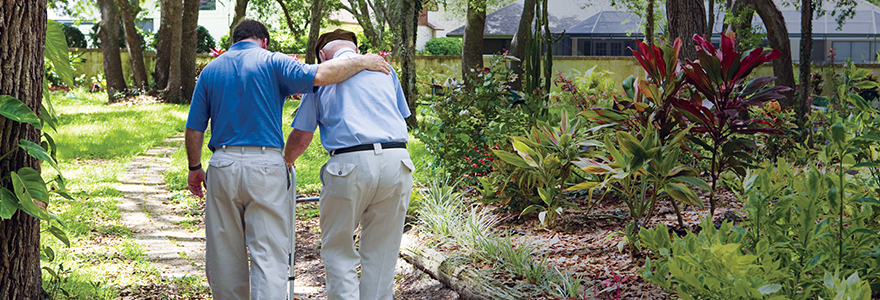Certification & Courses
Contact us
Phone: 519-661-1603
Toll-free: 1-888-625-0077
Email: ccaa@uwo.ca
1201 Western Road
Elborn College, Suite 1101
London, ON N6G 1H1
Map | Parking Information
Canadian 24-Hour Movement Guidelines
An Integration of Physical Activity, Sedentary Behaviour, and Sleep for Adults 65 Years or Older.
Get more information
Restorative Care Education Training (RCET)

Empowering Caregivers. Supporting Independence. Improving Lives.
Restorative care focuses on enhancing the quality of life for frail older adults by promoting independence, boosting self-esteem, and supporting greater engagement in self-care activities.
This training equips participants with strategies to:
- Improve functional mobility and physical functioning
- Encourage participation in daily living tasks
- Deliver restorative care in both individual and small group formats
Prerequisite(s): None, Registration Fee: $575.00 + applicable provincial tax.
Who Should Take the RCET?
This training is ideal for:
- Healthcare professionals and caregivers working with frail older adults
- Staff in long-term care, retirement, or home care settings
- Anyone supporting individuals who require assistance with activities of daily living (ADLs) or mobility
Course Outline
Pre-Course Learning (Approximately 10 hours self-paced)
- Factors that contribute to vulnerability in older adults
- Physical activity as an integral part of healthy living
- Basic review of key anatomy & physiology concepts
- Effective communication with older adults
Introduction to Restorative Care
- Definition of restorative care and scope of practice
- Overview of the Ontario Long-Term Care Homes Act (LTCHA) 2007 and Fixing LTCHA Act 2021
- Role of the restorative care team and understanding scope of practice
- Developing individualized plans of care
- Safety and risk management
- Screening, assessment, goal setting, and documentation
Positioning, Transfers, and Mobility
- Promoting comfort and safety through proper positioning
- Transfer techniques from minimal to advanced 2-person transfers
- Ambulation strategies and use of gait aids
- Fall prevention strategies
Restorative Exercise (RE) Programming
- Core components of restorative exercise:
- Range of motion
- Flexibility
- Balance
- Strength
- Cardiovascular endurance
- Creating and maintaining a safe exercise environment
- Screening and evaluation tools
- Supervising and monitoring group programs
- Supporting bed-based and individualized exercises
- Monitoring, documenting, and communicating progress
Communication
- Identifying barriers to effective communication
- Language, sensory impairments, cognition, culture, generational differences
- Implementing strategies for clear, respectful, and effective communication
Safe and Effective Eating Support
- Effective assistance of residents with safe and comfortable feeding support practices
- Recognizing, documenting and reporting signs of swallowing difficulties
Be part of a movement that restores dignity and independence for older adults.
Upcoming Sessions
To register for any of the courses below, sign in to MyCCAA.
If you are signing up multiple instructors OR using a company credit card, contact the CCAA at ccaa@uwo.ca or 519-661-1603 to register.
After you reserve a spot through MyCCAA, you will be re-directed to Western's payment portal "PurplePay" to process the payment and complete your registration. You must check out of PurplePay as a GUEST. Only those who have reserved a spot through MyCCAA and made a payment through PurplePay will receive a link to join the meeting(s) on Zoom.
Note: It may take up to three (3) business days for your payment to be reflected in MyCCAA.
